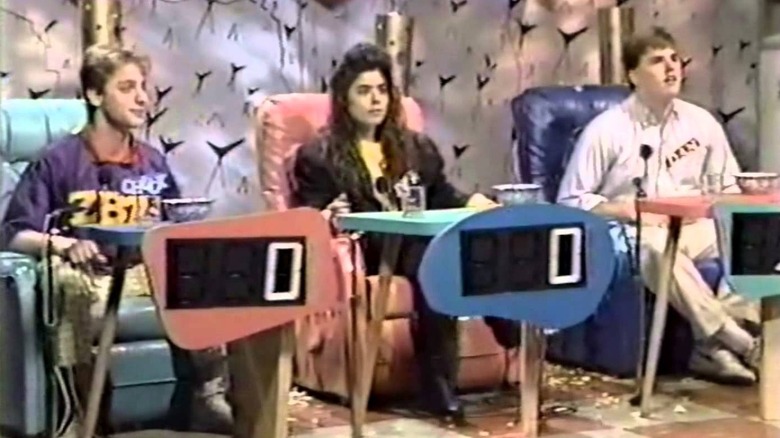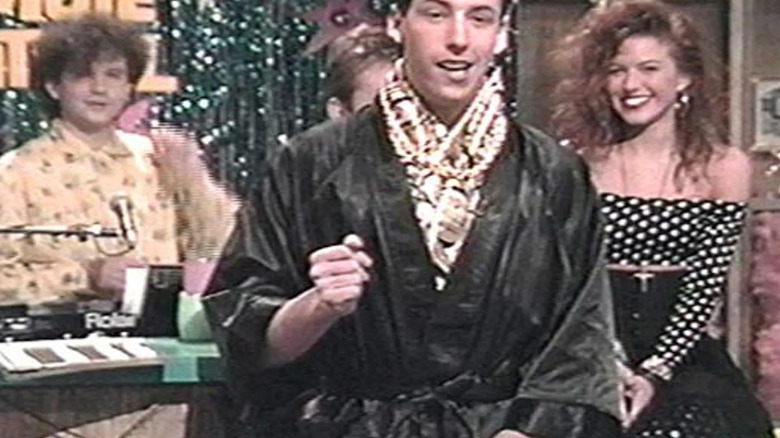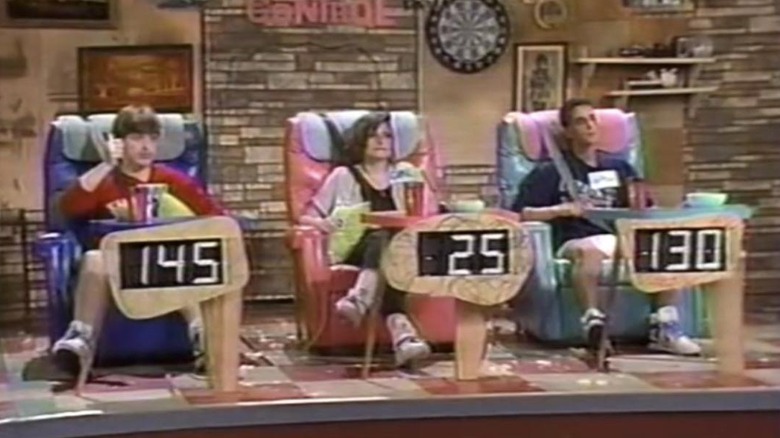MTV launched on August 1, 1981, famously charging out of the gate with The Buggles’ hit music “Video Killed the Radio Star.” It was fairly presumptuous and cheeky for the fits at MTV to imagine that their new community was immediately ripping aside an previous media panorama, however they have been ultimately confirmed considerably proper. MTV turned, for a chronic spell, a model new cultural fulcrum for Gen-X youths. The community did not simply randomly showcase hip music movies — a medium that exploded in reputation because of MTV’s machinations — however rigorously curated them, permitting viewers to understand sure genres, labels, or artists they might not have identified in any other case. Some early MTV explorers might recall 1983’s “I.R.S. Information Presents The Chopping Edge.” Hosts would introduce blocks of movies and even take requests. The time period VJ entered the pop lexicon.
Additionally, to spherical out their programming blocks, MTV ran a number of information segments and documentary exhibits, updating viewers on pop music because it was occurring. The tone of those exhibits was typically non-formal, however the newsreaders and documentarians took their job severely, making an attempt to be as thorough and in-depth as doable. MTV was instant and essential, permitting the world of pop to broaden and diversify and undercut the previous world’s old payola roll blues.
By 1987, the community was larger than ever, and its snarky, satirical, fast-slicing angle started to tell the tradition at giant. A secure of celebrities had grown up on MTV, and youngsters who have been there for the primary evening of broadcast have been now in school. The community had develop into self-conscious, and lots of of their exhibits served as a commentary on TV itself.
Working example: in 1987, the community’s very first scripted program debuted. It was a recreation present referred to as “Distant Management,” a trivia collection whereby contestants would sit in La-Z-Boy recliners and choose whimsically named trivia classes from a CRT TV with their handheld remotes (one thing of a novelty on the time).
Distant Management turned TV inside out
“Distant Management” was hosted by Ken Ober and featured Colin Quinn because the present’s announcer. Within the present’s first season, Marisol Massey starred because the Vanna-White-like co-host, whereas Kari Wuhrer took over the half for the second and third seasons. She was changed by Alicia Coppola in season 4 (Alicia is, by the way, not associated to the Francis Ford Coppola dynasty), and at last by Susan Ashley in season 5. The present came about on a colourful, cluttered set adorned with the accoutrements of a “man-cave”-style basement. The contestants would sit of their straightforward chairs over to the suitable, whereas an outsize TV with questions on it was throughout the stage on the left; consider “Jeopardy!,” however with not one of the class.
Ober declared that the set was truly his personal private basement and that he remodeled it right into a recreation present studio to satisfy his dream of being a recreation present host. The opening theme music depicts Ober obsessing over TV, staring on the fool field when his dad and mom have been scolding him as a baby, or when ladies have been making an attempt to make advances as an adolescent. The theme of the present was that being raised on TV had saturated our brains with rubbish water and made us dumber (and MTV fortunately implicated itself on this). As a substitute of actual information, we solely had popular culture trivia. And if that was the case, we might as nicely have a bit enjoyable. There was a notice of cynicism beneath the whimsy.
The present was fairly unfastened, by way of its angle (one can watch previous reruns on-line), with Ken cracking sensible, and the contestants not likely taking the sport very severely. Ober would learn questions (normally with a wisecrack), however typically the crew would enact a scene or sing a music that the contestant needed to interpret. Typically, contestants would simply need to endure a schoolyard humiliation like a moist willy or a purple nurple.
Distant Management was an enormous hit
My favourite a part of “Distant Management” was the Snack Break, which was simply an intermission to the trivia the place the contestants got meals. Like on Nickelodeon, it was dumped on their heads.
A number of celebrities would move by “Distant Management,” a lot of them up-and-coming comedians. Some episodes characteristic the youthful faces of Denis Leary and Adam Sandler. Visitor celebrities would move by sometimes to assist out with clues, together with Nipsey Russell, LL Cool J, “Bizarre Al” Yankovic, Bob Eubanks, and Jerry Mathers. Later within the collection, the present had develop into in style sufficient to boast charity episodes whereby celebrities would compete. Yankovic and LL Cool J competed towards comic and MTV VJ Julie Brown. The Purple Sizzling Chili Peppers appeared on the present, as did Barry Williams, Eve Plumb, and Susan Olsen, all previously of “The Brady Bunch.”
And make no mistake, “Distant Management” was a success. Its irreverence was infectious, and its trivia was legitimately exhausting; “Distant Management” made a head stuffed with TV trivia really feel quickly helpful. By 1989, the worldwide variations of MTV launched their very own counterparts of “Distant Management,” and merch started showing in shops. There was a “Distant Management” board recreation in 1989, and an NES recreation in 1990. Years later, one can nonetheless discover the early “Remote Control” websites, revealing to the kiddos what the web used to appear to be to us oldies.
The collection ran 5 seasons in 4 years, lastly leaving the airwaves in 1990. “Distant Management” left a legacy behind, nonetheless. It proved that MTV not solely had its personal distinctive angle, however that its angle may very well be wielded into unique concepts. Their unique exhibits started to incorporate bizarre animated exhibits like “Liquid Tv” the subsequent 12 months, and unique scripted content material like “Lifeless at 21” by 1994. MTV started to supplant its music video blocks with actuality exhibits, recreation exhibits, and cartoons. The community turned much less music-oriented and extra like an ongoing selection present. For a couple of valuable years, it had every thing.






